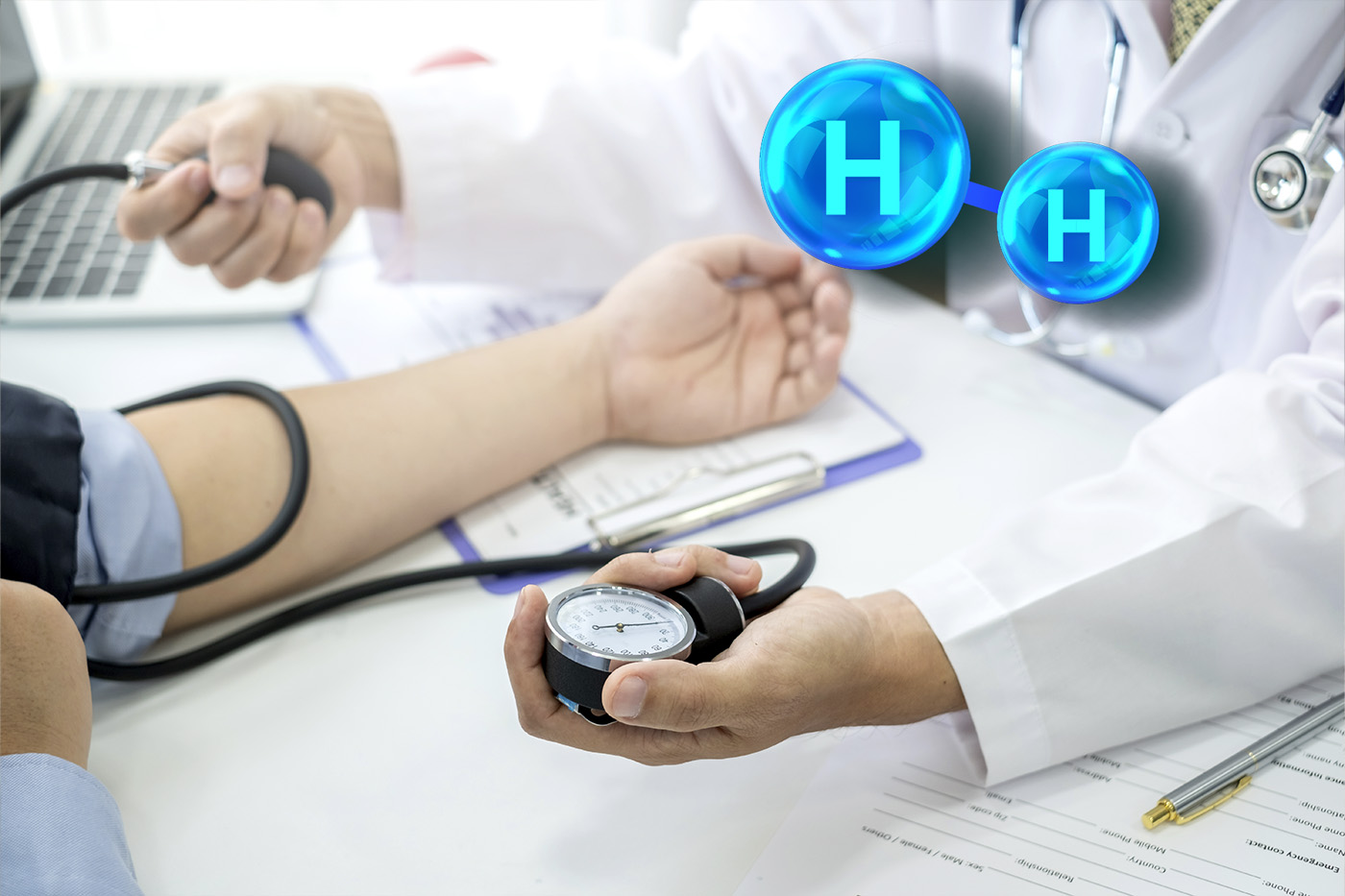H2 has shown anti-inflammatory and antioxidant ability in many clinical trials, and its application is recommended in the latest Chinese novel coronavirus pneumonia (NCP) treatment guidelines. Clinical experiments have revealed the surprising finding that H2 gas may protect the lungs and extrapulmonary organs from pathological stimuli in NCP patients.

1. Introduction
Molecular hydrogen (H2) is the lightest chemical element in the earth’s atmosphere. H2is often mixed in gas cylinders for deep-sea divers to breathe, to prevent decompression and nitrogen sickness. In mammals, H2 is spontaneously produced by intestinal bacteria in the process of anaerobic metabolism to produce energy and is enzymatically catabolized by hydrogenases to provide electrons.
Therapeutic applications of H2 were first described in 1975. Dole et al. reported that hyperbaric hydrogen caused marked regression of tumors in mice with skin squamous carcinoma. However, hyperbaric H2 is not a clinically feasible option, and H2 is a physiologically inert gas that seems not to react with any active substances, including oxygen gas, in mammalian cells. Thus, H2 was perceived as being nonfunctional and was disregarded clinically.
In 2007, the potential therapeutic benefits of H2 were described. Ohsawa et al. discovered that H2 has selective antioxidant properties that protect the brain against ischemia/reperfusion (I/R) injury and stroke by specifically neutralizing hydroxyl radicals (⋅OH) and peroxynitrite (ONOO-) but not superoxide anion radical (⋅O2-), hydrogen peroxide (H2O2), and nitric oxide (NO). The report generated worldwide attention thrust H2 into the spotlight of therapeutic medical gas research. Many studies using cellular, animal, and clinical experiments in a variety of biomedical fields have explored the therapeutic and preventive effects of H2.
The collective data have indicated that H2 is an important pathophysiological regulatory factor with antioxidative, anti-inflammatory, and antiapoptotic effects on cells and organs. It is so convenient to use that H2 can be easily administered in various ways, including inhalation, injection of H2-rich saline (HRS), drinking H2-rich water (HW), bathing in HW, and using HRS eyedrops. As well, the production of intestinal H2 by bacteria can be increased via oral administration of acarbose and lactulose. Liu and his colleagues demonstrated that the hydrogen concentration reached a peak of 5 min after oral and intraperitoneal administration, and in only 1 min following intravenous administration.
Corona Virus
Beginning on 31 December 2019 in Wuhan, China, illness and pneumonia named coronavirus disease-2019 (COVID-19) caused by severe acute respiratory syndrome coronavirus 2 (SARS-CoV-2) has spread to become a pandemic. The seventh edition of Chinese Clinical Guidance for COVID-19 Pneumonia Diagnosis and Treatment (7thedition) issued by China National Health Commission recommended the inhalation of oxygen mixed with hydrogen gas (33.3% O2 and 66.6% H2), bringing H2 to the forefront of contemporary therapeutic medical gas research.The preventive and therapeutic effects of H2 have been intensively investigated for various pathological processes.
We summarize the most recently published literature concerning the use of H2 in respiratory, cardiovascular, nervous, digestive, reproductive, urinary, motor, and sensory system diseases, as well as for the treatment of metabolic syndrome and cancer. We also briefly discuss some known mechanisms underlying the action of H2. We hope that this information will increase the understanding of the therapeutic activities of H2 and inform future H2-based therapies.
Reference & Full article:
https://www.hindawi.com/journals/omcl/2020/8384742
- Mechanisms of the Action of H2
- Anti-Inflammatory Effect of H2
- Regulation of Oxidative Stress
- Regulation of Endoplasmic Reticulum Stress
- Regulation of Mitochondria
- The Effects of Hydrogen on the Immune System
- Effects of H2 on Cell Death
- Preventive and Therapeutic Applications of H2
- Effects of Hydrogen on the Respiratory System
- Effects of Hydrogen on the Nervous System
- Effects of Hydrogen on Cardiovascular Diseases
- Effects of Hydrogen on Digestive System Diseases
- Effects of Hydrogen on Reproductive System Diseases
- Effects of Hydrogen on Urinary System Diseases
- Effects of Hydrogen on Metabolic Syndrome
- Effects of Hydrogen on Motor System Diseases
- Effects of Hydrogen on Sensory System Diseases
- Effects of Hydrogen on Cancer
